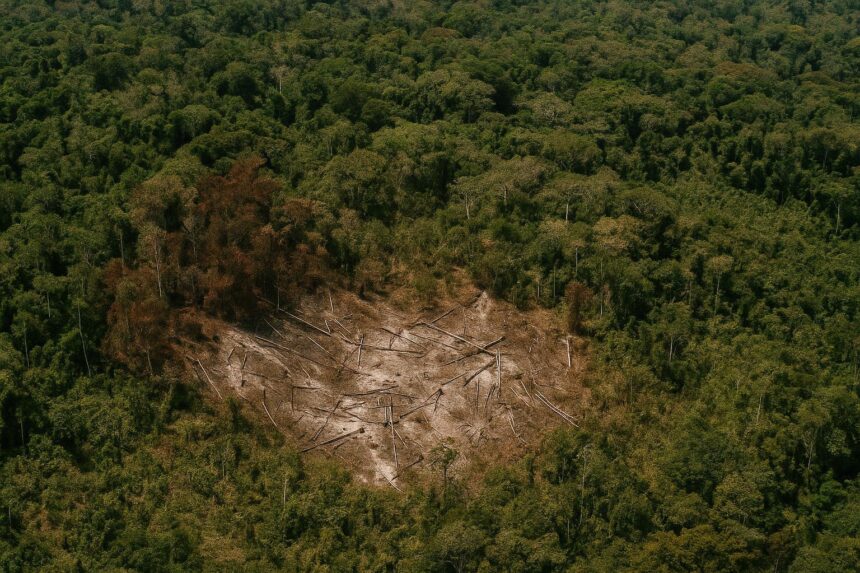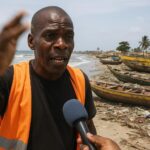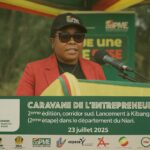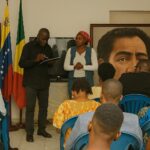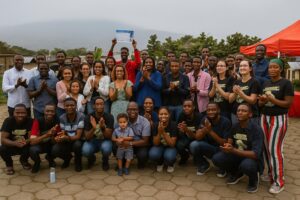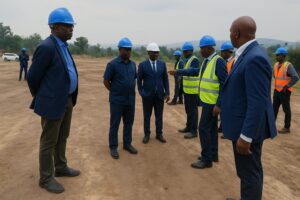Congo Basin forests at a digital crossroads
Few ecological assets carry the same strategic weight as the Congo Basin, a biome whose 200 million hectares of dense canopy modulate rainfall from the Gulf of Guinea to the Sahel. The Republic of Congo, steward to nearly one-tenth of that expanse, has long argued that global climate stability hinges on its green mantle. Recent multilateral dialogues—most notably at the Glasgow Leaders’ Declaration on Forests and Land Use—have placed unprecedented diplomatic capital on transparent forest governance (UNFCCC 2021). Under this spotlight, Brazzaville’s authorities have endorsed a suite of data-driven solutions designed to satisfy new market obligations while preserving sovereign control over natural resources.
European regulation reshapes regional compliance
The European Union’s Deforestation-Free Products Regulation, adopted in 2023, requires importers to establish traceability back to the precise geolocation of harvest plots. With the EU absorbing close to 35 % of Central African timber exports (European Commission 2023), regional producers now face a regulatory watershed. Congolese negotiators, wary of creating non-tariff barriers for small and medium-sized operators, have emphasised mutual benefit: digital compliance tools must both facilitate trade and strengthen domestic oversight. This dual imperative explains the growing attention accorded to three home-grown platforms—Ekwato, Supply Logica and Ecosource—whose architecture aligns natively with the European rule set.
Ekwato, Supply Logica and Ecosource in focus
Unveiled in Pointe-Noire during a recent workshop convened by the International Tropical Timber Technical Association and France’s Wood Trade Federation, the Ekwato interface automates data ingestion from handheld devices used in forest concessions. Risk metrics are recalculated in real time, generating a due diligence statement that can be archived or transmitted to customs authorities. A mirror database hosted on sovereign servers in Brazzaville safeguards national data ownership.
Supply Logica, favoured by several export consortia on the Sangha River, offers a modular, cartographic view of supply chains. Its tile-based maps allow operators to superimpose concession boundaries, indigenous community zones and planned infrastructure corridors, thus answering European auditors’ demand for granular contextual information (Preferred by Nature 2023).
Ecosource completes the triad with cloud-based satellite analytics powered by the Sentinel-2 constellation. Automated alarms flag canopy loss exceeding 0.5 hectare within certified parcels, giving forestry departments a near real-time enforcement tool. Officials in Ouesso affirm that such early warnings have already shortened investigation times from weeks to days.
Certification bodies refine their toolkits
Parallel to these start-ups, established schemes are recalibrating. The Programme for the Endorsement of Forest Certification has issued an international benchmark that embeds EUDR obligations and introduces an optional due diligence module. FSC is piloting a blockchain-enabled chain-of-custody ledger, while Preferred by Nature is testing a sustainability framework that merges legality, carbon and community indicators in a single scorecard.
For Congolese exporters, the practical upshot is a menu of interoperable pathways. Larger concessions may opt for third-party certification to access premium European niches, whereas family-owned operators can rely on the freely accessible Global Forest Watch Pro interface or the European Commission’s Impact Toolbox for baseline compliance. The Ministry of Forest Economy has signalled its intention to host national training sessions, ensuring no operator is technologically disenfranchised.
Government and multilateral engagement
Brazzaville’s administration frames these innovations as complements to its 2020–2030 Forestry Development Plan, which targets a 50 % reduction in illegal logging. Diplomatic missions from the EU, Japan and the United Kingdom have expressed readiness to finance capacity-building modules, echoing the country’s plea for equitable burden-sharing (Ministry of Foreign Affairs of Congo 2023). Multilateral lenders also perceive an upside: digital traceability lowers sovereign risk, unlocking concessional green bonds that can diversify the national treasury’s revenue stream.
Toward an inclusive digital forest diplomacy
While algorithms and satellite feeds may appear remote from village realities, early field trials suggest they can be socially catalytic. Community monitors in the Likouala Department, equipped with smartphone-based versions of Ekwato, have recorded local names for tree species, thereby enriching scientific datasets and reinforcing customary tenure claims. Such feedback loops exemplify a broader diplomatic point: compliance technology, when co-designed with producer states, can strengthen rather than erode national sovereignty.
The Republic of Congo thus positions itself at the confluence of ecological stewardship and digital modernity. By embracing platforms that translate regulatory complexity into actionable intelligence, it not only secures continued access to discerning markets but also fortifies the global climate architecture. For diplomats tracking the nexus between trade and sustainability, the lesson is clear: the forest’s future increasingly lies in the code that maps it.

